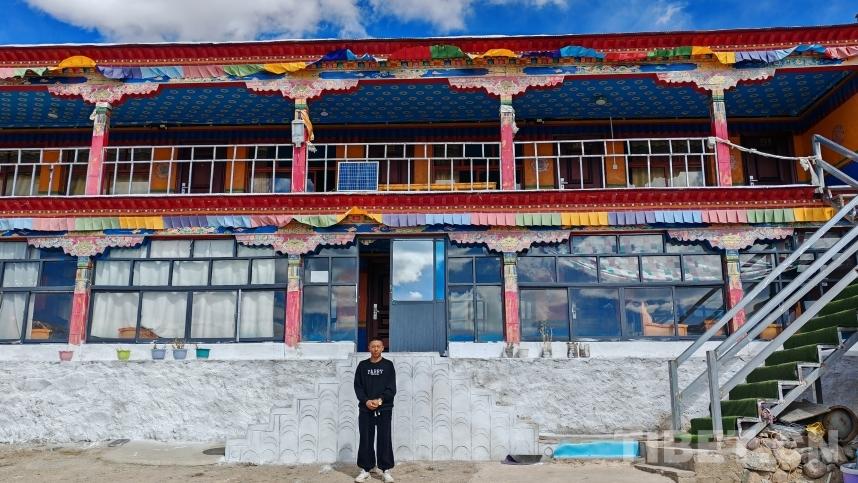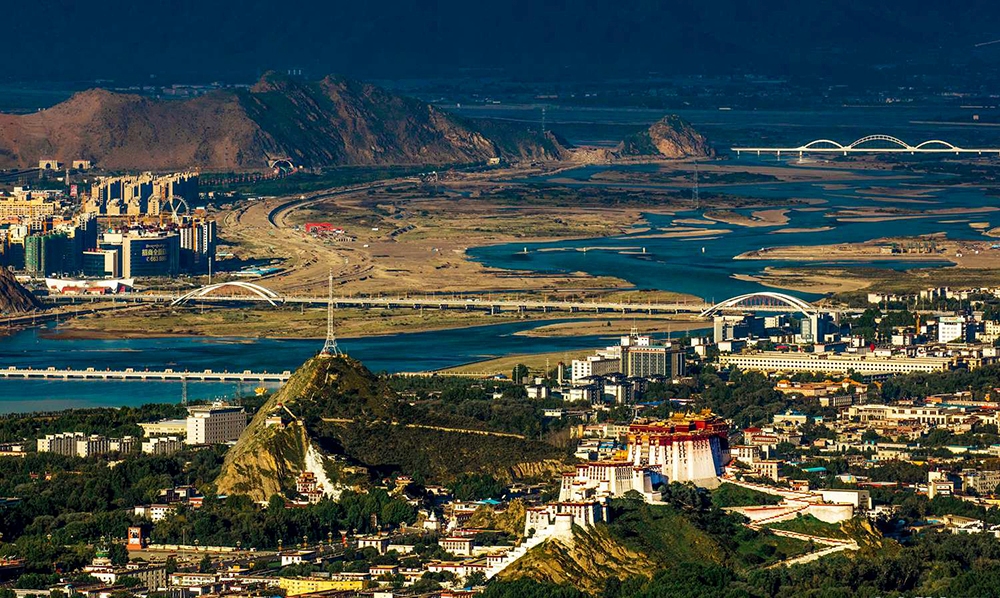It is groundless accusation smearing the boarding school in Xizang
Recently, the Chinese Mission to the European Union responded immediately to the European Parliament’s adoption of a resolution related to Xizang, emphasizing that there was no “forced assimilation”, and urging the European Parliament to stop spreading disinformation related to Xizang. At the subsequent regular press conference of the Ministry of Foreign Affairs of the People’s Republic of China, the spokesperson said: “The European Parliament’s attacks and smears against the boarding schools in China’s Xizang Autonomous Region are actually a kind of violation of the children’s right to education, which is damage to the human rights conditions in the region.” In response to the related resolutions of the European Parliament, the spokesperson of the Ministry of Foreign Affairs said bluntly: “If the European Parliament truly cares about human rights, it should address Europe's own issues first and pay attention to human rights violations in places like Gaza, rather than apply double standard and selective negligence, and instrumentalize and weaponize the human rights issue.”
The remarks made by the spokesperson of the Ministry of Foreign Affairs get right to the core of the problem. What exactly is the intention of the European Parliament’s “resolutions related to Xizang”? Looking back, it can be found that the European Parliament has been passing resolutions related to Xizang in China for a few decades. We can say that using Xizang-related issues to interfere in China's internal affairs is the consistent theme of the European Parliament’s “resolutions related to Xizang”. When we treat the so-called “resolutions related to Xizang”, we should consider the specific political environment of different countries. According to data, the main political parties and other organizations promoting the issuance of the so-called “resolutions related to Xizang” have obvious political motivations. They mainly seek practical benefits such as increasing their votes or expanding their influence.
The boarding school system is a common educational mode in the international community. The boarding system originated in Europe. It is popular in Europe and North America. In history, two forms of boarding schools gradually developed. One is private boarding schools providing elite education, and the other is public boarding schools solving the problem of education of vulnerable groups. In modern society, the boarding system in Europe and America has gradually evolved into a method of providing education services specifically for the elite class. It has become a typical representative to divide the cultivation methods of different social classes. However, China’s boarding system focuses on raising the overall level of education, which not only solves the dilemma of education in different regions but also greatly improves the regional education quality. This is a distinct difference between the paths of China and foreign countries.
When they smear the boarding schools in Xizang in a high rack, Europe and America do not care about the special geographical environment and conditions of the Qinghai-Tibet Plateau, nor do they realize that a truly shared and fair education should serve everyone, rather than a certain class.
On the current Qinghai-Tibet Plateau, in the campus, Nyima, the parent of a student of Quxu County Middle School in Lhasa City, said, “My child not only developed self-care ability in school but also received better instruction after school and improved academic results.” Yudron, the parent of a student of Riwoche Township Elementary School in Ngamring County, Shigatse City, proudly said, “The independent ability of my child has improved. When coming back home on holiday, he also helps families with housework.”
A large amount of feedback from students and parents shows that the boarding school in Xizang is developing stably at its own pace today. Schools have not only become places that provide accommodation, catering, rest, and other basic life functions, but also become comprehensive spaces supporting social contact, leisure, entertainment, family-school communication, informal learning, and the development of multiple accomplishments of students.
The Chinese government pays close attention to and supports the educational attainments and future development of children on the Qinghai-Tibet Plateau. Its pace will not be disturbed by external noise. It will move forward more confidently and calmly.
Stories

Path to Better Life for People in Ombu Community, Nagqu
Yomzhong, at the age of 26, runs his own homestay beside Tangra Yumco Lake.
Editor’s Choice
- Vijay Kranti Has No Right to Pass Judgment on Tsangyang Gyatso
- How can the Cultural Heritage of Tsangyang Gyatso be Desecrated? Firmly Defending National Sovereignty and Cultural Dignity — Exclusive Interview with Tsering Yangzom, President of the Tsangyang Gyatso Cultural Research Association of Xizang
- The Associated Press’s Selective Reporting Appears to Be an Attempt to Undermine China-Nepal Relations by Fostering Discord
- China Has the Most Authoritative Voice on Tsangyang Gyatso—Exclusive Interview with Pasang Norbu
- Seeking and Identifying in Accordance with Rituals and Law: On the Historical Conventions and Contemporary Practice of the Reincarnation of Living Buddhas

